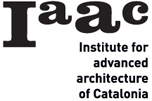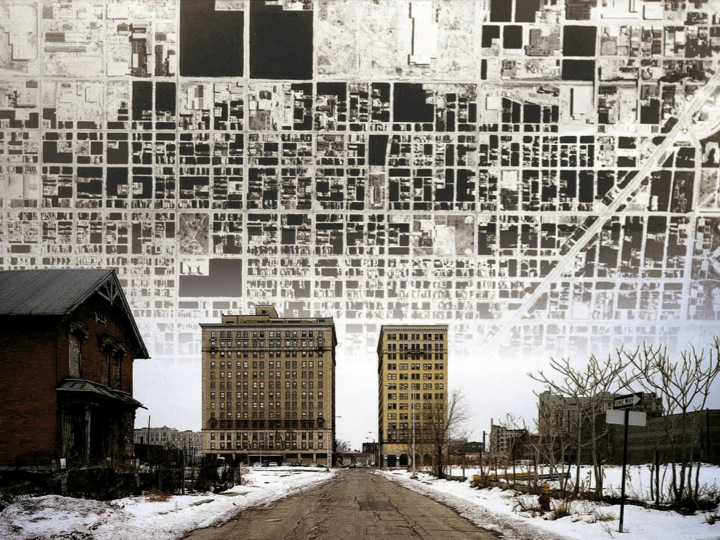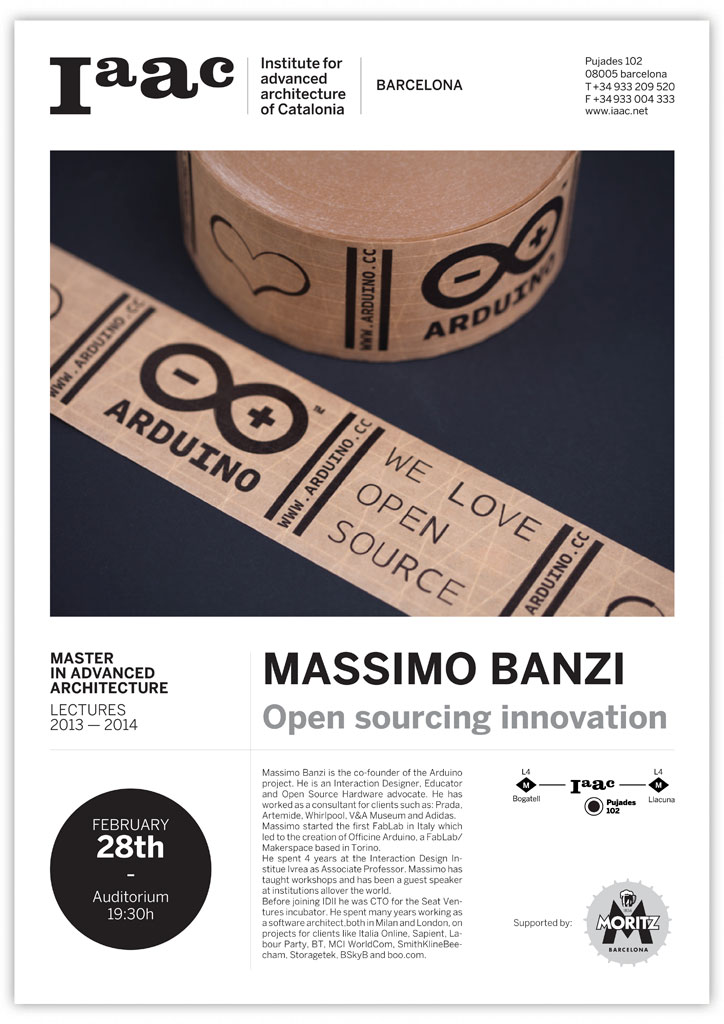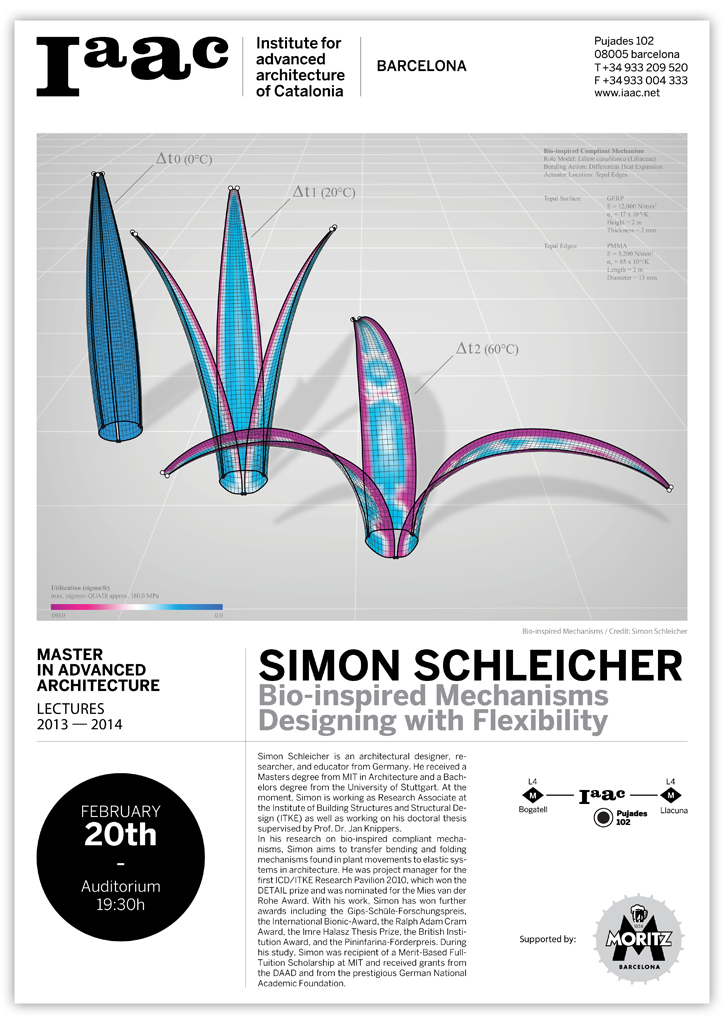Tonight we had the pleasure of hosting the Winter Lecture Series 2014 with Mosè Ricci, as part of the International Seminar regarding Theory and Landscape, entitled “Landscape and Emotion, the resurrection of Emotional Geographies”, and organised in collaboration with the Universitat Pompeu Fabra, Observatori del Paisatge and IaaC.
In his lecture Prof. Ricci discussed the change in the urban paradigm as well as the concept of urban recycling, using the case of Detroit as a critical observation, hence Learning from Detroit.
“Detroit could be considered the operating manifesto of the new urban condition in the Western World. It is possible to use it as a point of reference or as a case study to focus on or – better – to learn from. In Detroit, at the end of the last century, something crucial happened to the western metropolis future. More than 320,000 jobs were lost between 2001 and 2008, and about 57% of the population having left the city from 1970, and 25% in the past decade. Detroit no longer expresses a traditional urban figure. In Detroit the “Modern City” is dead, with the economy that molded its spaces.
Detroit is the American Pompeii.
In the space of just a few years its population fell from 1,850,000 to 740,000, more than 2,000 buildings were knocked down, resulting in the abandonment of the center for an area with an approximately eight-mile radius that is glaringly evident. Nevertheless, more than ten years later, something is happening. As a result of the crisis of the economy that had generated it, the Fordist metropolis of Detroit has been forced to think about the problem of its survival and its fate. And Detroit is slowly finding another dimension. New urban materials are taking the place of the traditional urban figures and they give the ruins of this Fordist city back to narrative and nature by transforming Detroit into the real first post-metropolis. The movement from landscape, as a way of measuring (a territory), to a system of values (a landscape) is the conceptual basis and the general goal of the most interesting projects and events that are happening in Detroit. Reduction, reuse and recycle seem to be the only sustainable social strategies capable of expressing innovation, of generating consensus and producing beauty in the cities in the age of the crisis.” Mosè Ricci
The Lecture was then followed by a conclusive Round Table with Mosè Ricci, Isabel Valverde (UPF), Manuel Gausa (IAAC) and Joan Nogué (OdP).




